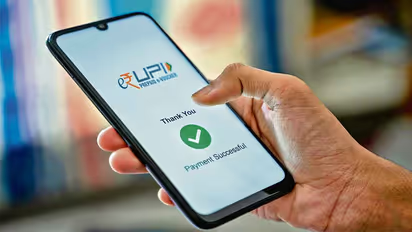UPI new rules: 5 major changes that come into effect from January 1, 2024

Synopsis
To enhance the scope of UPI payments, the Reserve Bank of India (RBI) announced some measures and changes that will be applicable from January 1, 2024. Check details here.
One of the most popular options for payments in the nation right now is the Unified Payments Interface (UPI). India has seen a significant increase in the number of digital transactions since it started. The Reserve Bank of India (RBI) has agreed on additional regulations and adjustments that will take effect on January 1, 2024, to further improve UPI payments.
Beginning on January 1, 2024, a number of significant laws and regulations pertaining to UPI transactions were passed.
UPI ATM: The RBI plans to roll out UPI ATMs across the country. These ATMs allow you to take out cash straight from your bank account by scanning a QR code.
Four-hour time restriction: There will be a four-hour time restriction for the first payment above Rs 2,000 made between customers who have never transacted previously in an effort to curtail the rising number of incidents of online payment fraud. Members of UPI will soon be able to use the "Tap and Pay" function.
Interchange fees: An interchange fee of 1.1 percent would be charged for particular merchant UPI transactions over Rs 2,000 that are made using prepaid payment instruments (PPI) such online wallets.
Increased transaction limits: For UPI transactions, the NPCI has established a new maximum daily payment limit of Rs 1 lakh. On December 8, however, the RBI raised the UPI transaction limit to Rs 5 lakh for healthcare and educational institutions. The previous transaction limit was one lakh rupees.
Deactivation of inactive UPI: Payment applications such as Paytm, Google Pay, PhonePe, and banks have been requested by the National Payments Corporation of India (NPCI) to disable UPI IDs and numbers that have not been used for more than a year. If a UPI ID or associated mobile phone isn't used for transactions for more than a year, they will be terminated. This is an attempt to prevent unused accounts.
Stay updated with all the latest Business News, including market trends, Share Market News, stock updates, taxation, IPOs, banking, finance, real estate, savings, and investments. Track daily Gold Price changes, updates on DA Hike, and the latest developments on the 8th Pay Commission. Get in-depth analysis, expert opinions, and real-time updates to make informed financial decisions. Download the Asianet News Official App from the Android Play Store and iPhone App Store to stay ahead in business.